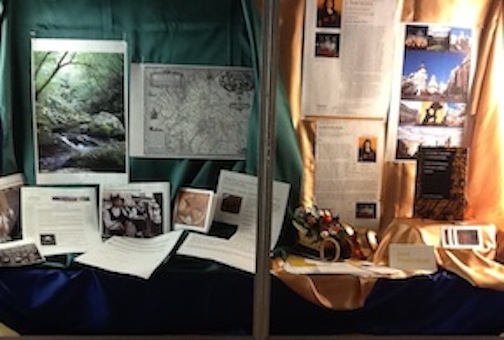Género, nación y literatura: Emilia Pardo Bazán en la literatura gallega y española
Carmen Pereira-Muro
Emilia Pardo Bazán’s place in Spanish and Galician literatures has been hard won, and she has yet to receive the recognition she deserves. In Género, nación y literatura: Emilia Pardo Bazán en la literatura gallega y española, Carmen Pereira-Muro studies the work and persona of this fascinating author in the context of Spanish and Galician competing nationalisms. She re-reads the literary histories and national canons of Spain and Galicia as patriarchal master narratives that struggle to assimilate or silence Pardo Bazán’s alternative national project.
Pereira-Muro argues that Pardo Bazán posited the inclusion of women in the national culture as a key step in circumventing the representational logic behind Realism and Liberalism in the modern nation-state. By insisting that women should be equal partners, Pardo Bazán problematically adopted the patriarchal binarism that assigns women to Nature and men to Culture, but she also subverted it by denying its supplemental relationship. Her astute choice and manipulation of masculine cultural models (Realism, not Romanticism; prose, not poetry; Castilian language, not Galician) ultimately won her—despite fierce opposition—inclusion in the Spanish national canon. Furthermore, the study of her thorny relations with emerging Galician nationalism shows that her exclusion from “Galician literature” was due largely to her transgressive gender performance. Finally Pereira-Muro contends that in the author’s last novel, Pardo Bazán experimented with creating a feminine writing and a feminine canon for Spain. Nevertheless, the prevailing gender politics ensured that only her realist (masculine) production made it into the Spanish canon, and not this last, modernist (feminine) writing.
In conclusion, this book questions the naturalization of national canons by uncovering the gender politics behind what is cast as naturally determined by language and geography. Doing this also exposes the parallel gender strictures at work behind seemingly opposed central (Spanish) and peripheral (Galician) national projects.
"This is a very gifted writer whose prose is seamless and pleasurable to read. Her book is the first to analyze in-depth the role of Pardo Bazán as a catalyzing force in the cultural nationalism associated with the period of the Restoration in Spain." —Lou Charnon-Deutsch, author of Gender and Representation
“…this excellent book provides a definitive characteriation of Emilia Pardo Bazán’s novelistic trajectory. Carmen Pereira Muro has woven together several strands in Pardo Bazán studies, and the resulting tapestry is elegant, straight-forward, and convincing.” Denise DuPont, Iberoamericana 13.50 (2013): 217-19
“Pereira-Muro studies Pardo’s canonical and lesser-known narrative works and essays to contend that this familiar but often-misunderstood author’s literature served as a catalyst for cultural nationalisms in both greater (national) Spain and her native (regional) Galicia. … an insightful, well-written, and well-researched study.” —Yvette Fuentes, Letras Femeninas 39.2 (Winter 2013): 275-78
“… [This book] not only gives an in-depth study on Emila Pardo Bazán’s literary output, but also provides the reader with a useful historical overview of the period and literary genre in which she flourished. Carmen Pereira-Muro’s thorough knowledge of critical theory helps to define the struggles that Pardo Bazán endured in her lifetime and from criticism throughout the twentieth century, fortifying even more not only her place in the literary canon, but also her influence in shaping Spain’s national culture.” —James C. Courtad, Symposium 68.1 (2014): 52–54.
“Pereira-Muro demonstrates that modernism, primarily due to its destabilization of gender categories, is the movement that helped Pardo create a narrative space that was “feminine” and at the same time modern. … Pereira-Muro has conducted an extensive analysis of Pardo-Bazán’s letters, essays, speeches, and novels. This study will be essential reading for scholars of Emilia Pardo-Bazán, gender and culture, and nineteenth-century Galician and Spanish nationalisms.” —Kathleen Honora Connolly, Hispania 97.3 (Sept. 2014): 520-21.
"Engaging with scholarship from the past and present, and from both sides of the Atlantic, Género, nación y literatura, is essential reading for all Pardo Bazán scholars, as well as anyone interested in Spanish national identity, Galician regional identity, or questions of gender, in late nineteenth- and early twentieth-century Spain. In this well-researched and cogently argued monograph, Pereira-Muro makes a solid and persuasive argument that is both historically grounded and in dialog with contemporary theory. …an outstanding piece of scholarship that breaks new ground.…" —Jennifer Smith, Anales Galdosianos 49 (2014): 141-43.
For more reviews, see
Reference and Research Book News, Feb. 2013
Carmen Pereira-Muro, Texas Tech University, has published on questions of gender and nationalism in eighteenth- and nineteenth–century literatures, and on other topics related to Emilia Pardo Bazán and Galician literature. She is also the author of Culturas de España.
PSRL 56. 2012. vi, 230 pp. Paper ISBN 978-1-55753-625-9 $45.00; ePDF 978-1-61249-243-8 $22.99; EPUB 978-1-61249-244-5 $22.99. In Spanish; some quotations in Galician

Display case in Stanley Coulter Hall, December 12-19, 2012.
Last updated June 29, 2015
For information about this book, contact the production editor at clawsons@purdue.edu